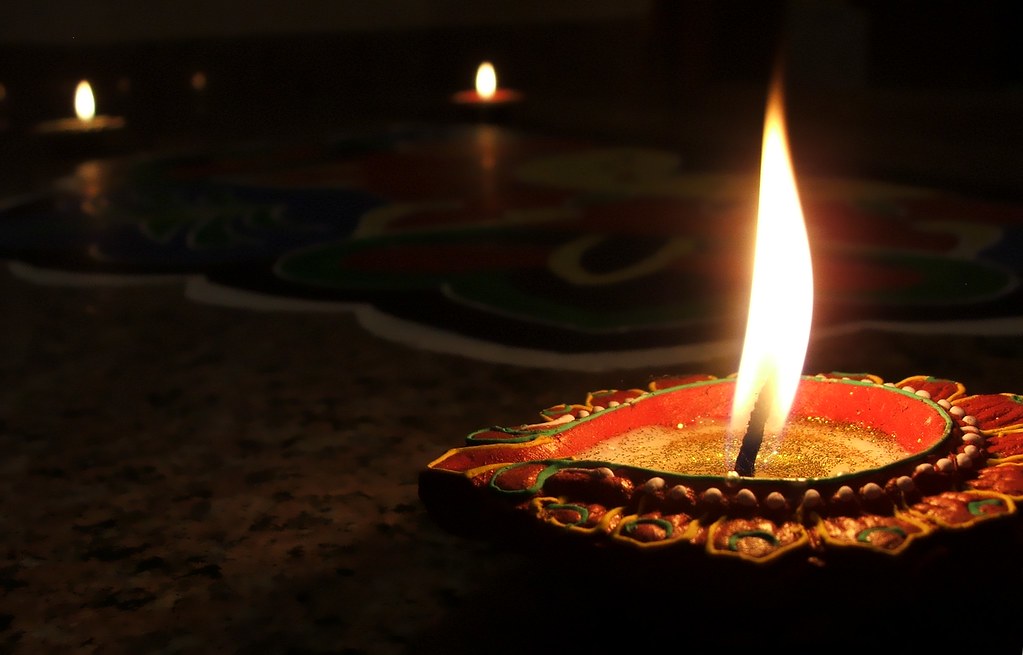Difference Between Diwali and Hanukkah
Religious ceremonies remain an integral part of society today. Often performed using objects, gestures, actions or words at a set sequence and sequestered place, these practices are characterized by rule-governance, traditionalism, formalism, sacral symbolism and invariance. They may include rites of passage, worship rites, purification rites, dedication ceremonies and oaths of allegiance, just to name a few. Diwali and Hanukkah remain some of the most popular religious celebrations all over the world today. Although they differ in context, they remain important ceremonies in the respective communities.

What is Diwali?
Also referred to as the festival of lights, this is the celebration of the Hindu New Year which usually lasts 5 days. It is observed in late October or early November and is the most celebrated festival in the Hindu calendar. Although it is a Hindu celebration, it may be celebrated by Jains, Sikhs, Muslims and other non-Hindus. The festival also welcomes Lakshmi, the goddess of abundance, prosperity and well-being. Part od Diwali is hence dedicated to receiving her blessings and worshiping her.
Diwali celebrates the victory of good over evil through two sacred legends. One is the story of Rama whereby a jealous stepmother banished a prince and his wife from his kingdom. During the exile period, the prince (Rama) battled the demon who had kidnapped the wife (Sita). The two celebrated the return to their kingdom by lighting rows of earthen oil lamps. The second story involves the mother of the earth (Narkasura) who becomes evil after befriending a demon. Narkasura is, however, defeated after Lord Krishna restores peace to the earth upon hearing the people’s story.

What is Hanukkah?
Also referred to as the festival of lights, this is an eight-day Jewish celebration to commemorate the Miracle of the oil. The history of Hanukkah dates back to over 2,000 years ago where the Jews in Judea rebelled against Antiochus, their Syrian ruler against the worship of Greek Gods by all Jews. The Jews celebrated their victory against Antiochus by lighting an oil lamp. They, however, did not have enough oil to burn the lamp for long. A miracle, however, occurred and they were able to burn it for eight days.
Jews celebrate Hanukkah by placing eight candles in a Menorah and lighting one candle for each evening’s celebration. To remind passers-by of the holiday’s miracle, the Menorah is displayed near the door or in the window. People also exchange gifts with the less fortunate.
Similarities between Diwali and Hanukkah
- Both are festivals of lights
Differences between Diwali and Hanukkah
Celebrated by
While Diwali is celebrated by Hindus, Hanukkah is celebrated by the Jews.
Importance
Diwali welcomes Lakshmi, the goddess of abundance, prosperity and well-being and celebrates the victory of good over evil through two sacred legends. On the other hand, Hanukkah commemorates the Miracle of the oil.
Celebration period
Diwali is celebrated for five days while Hanukkah is celebrated for eight days.
Diwali vs. Hanukkah: Comparison Table

Summary between Diwali and Hanukkah
Diwali is a Hindu festival that welcomes Lakshmi, the goddess of abundance, prosperity and well-being and celebrates the victory of good over evil through two sacred legends. It is celebrated for five days. On the other hand, Hanukkah is a Jewish festival that commemorates the Miracle of the oil and is celebrated for eight days. Both are, however, festivals of lights.
- Difference Between Profit Center and Investment Center - July 2, 2022
- Difference Between Anti-Trust and Anti-Competition - June 6, 2022
- Difference Between Stocktaking and Stock Control - June 6, 2022
Search DifferenceBetween.net :
Leave a Response
References :
[0]Ron Wolfson. Hanukkah: The Family Guide to Spiritual Celebration. Jewish Lights Publishing, 2001. https://books.google.co.ke/books?id=dm9CJpsrQCkC&pg=PR19&dq=Hanukkah&hl=en&sa=X&ved=2ahUKEwippfzV_afrAhUN_BQKHXupBgk4ChDoATAAegQIBBAC#v=onepage&q=Hanukkah&f=false
[1]Carol Plum-Ucci. Celebrate Diwali. Enslow Publishers, Inc., 2007. https://books.google.co.ke/books?id=uKo14J8295MC&pg=PA91&dq=Diwali&hl=en&sa=X&ved=2ahUKEwjlhNX1_KfrAhXOA2MBHWbAClkQ6AEwCHoECAUQAg#v=onepage&q=Diwali&f=false
[2]June Preszler. Diwali: Hindu Festival of Lights. Capstone Publishers, 2007. https://books.google.co.ke/books?id=WTBkx-eLAU4C&printsec=frontcover&dq=Diwali&hl=en&sa=X&ved=2ahUKEwjlhNX1_KfrAhXOA2MBHWbAClkQ6AEwAHoECAQQAg#v=onepage&q=Diwali&f=false
[3]Image credit: https://live.staticflickr.com/2474/4021549307_bb5bd6cbb0_b.jpg
[4]Image credit: https://commons.wikimedia.org/wiki/File:Hanuka-Menorah-by-Gil-Dekel-2014.jpg
